Across the vast majority of Planet Earth, paid parental leave is a matter of fact. All that differs is just how many weeks parents get to spend uninterrupted with their newborn munchkins before they get back to the rat race. The average length of leave, globally, is 29 weeks. However, the United States is one of just seven countries with no national paid maternity leave.
A graph published by The New York Times last October, comparing paid maternity leave around the globe, is making the rounds on the internet again, and many Americans are shocked by how much of an outlier their country actually is. Redditors from around the world tuned into a viral thread featuring the graph and started sharing what the situation is like in their own countries. It’s eye-opening. And it’s proof that if the world found a way to make it work, the US can, too.
Scroll down for the most insightful posts we’ve picked out from the thread, and let us know in the comments what the parental leave situation is like at home for you, Pandas. And if we have any parents reading this today, we’d love to hear the advice you’d give to new parents!
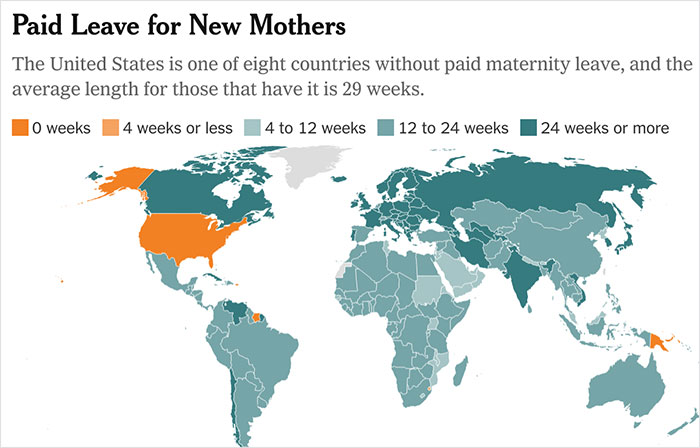
Image credits: nytimes
#1
Norwegian men are required to take two weeks off when the baby is born. Paternal leave in total is a minimum of 15 paid weeks and two weeks right after birth.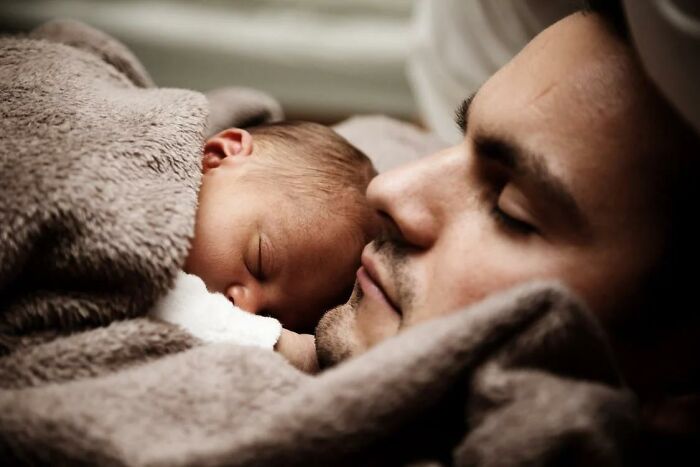
Image credits: ChristofferOslo
#2
I gave birth on a Friday. By Monday morning, my husband’s boss wanted him back in the office. That was the end of his paternity leave in the US.
Image credits: melanieg429f11f61
#3
My husband and I work for the same company in the United States. We recently found out that we must SHARE our 12 weeks of unpaid leave. We originally thought we would get 12 weeks per person. America really needs to start caring about parents and families. It's especially grating because I live in a religious red state where having families is a top priority, but the government isn't actually helping people to realize that goal.
Image credits: kaysuepacabra19
The New York Times article takes a look at paid maternity leave, paid parental leave, as well as paid leave for a health problem. Even though dads get a lot less love than new moms do, around the world, the general trend is the same: the US lags behind other developed and developing nations on Earth.
We’re too exhausted to call it embarrassing by this point, so we’ll settle for ‘unfair' instead. The healthcare system in the US can be inefficient, expensive, and (you could even argue, in some cases) predatory. Not all workers get the support that they need. In the Wild West system that’s in place, you can make it big… but if you get hurt or need some time off, you’re going to feel the pain. Badly. The American Dream seems to favor the eternally healthy and those without family obligations.
The fact of the matter is that newborn kids need to spend a lot of time with their parents. It builds a strong emotional connection between them that can last a lifetime. When you’re back at work right after becoming a new parent, it’s frankly ridiculous. Dystopian, even.
#4
In Canada, we have 12 or 18 months of maternity leave. You get paid 80% of your normal salary, but you get the same amount stretched out over either the course of a year or the 18 months.
Image credits: dee
#5
In Austria we can choose between one or two years, if you choose the 2 years you only get about 500€ per month, if you choose the one year it depends on your income before parental leave and you get up to 1700€ a month. All families additionally get about 170€ monthly per child in government assistance no matter their income. Oh and men have the right to go on paternity leave (meaning their employer is legally obligated to grant them paternity leave). If mom and dad split parental leave evenly you get another 1000€ bonus from the state.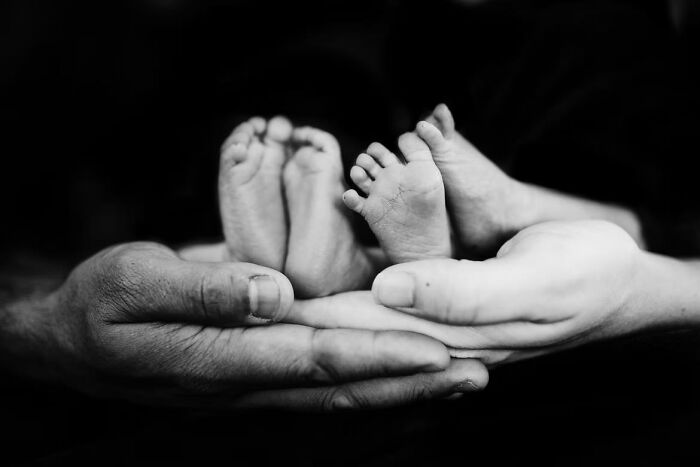
Image credits: WurmiMama
#6
Living in Italy... My wife's 2.500 euro wage became 287 euros a month. For 6 months. So, it's more of a semi paid leave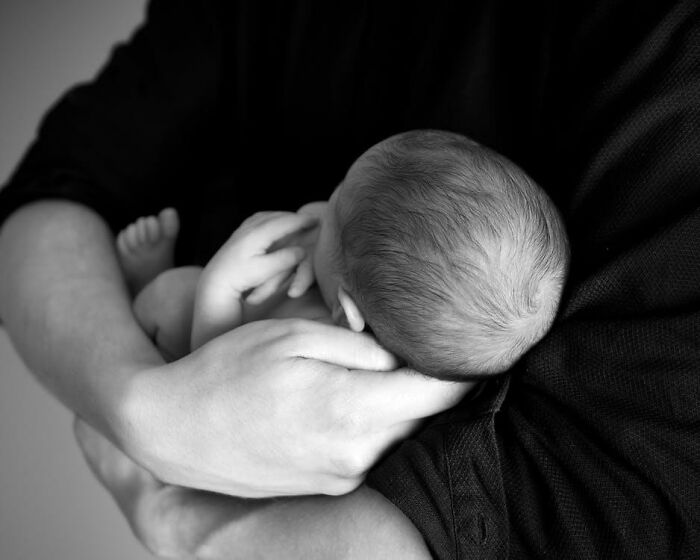
Image credits: Ok_Battle9098
BBC Worklife states that only around 21% of American workers have access to paid family leave through their employers. Other parents have access to 12 weeks of _unpaid leave_ if they work at a company with 50 or more employees. That puts a lot of pressure on parents who feel the financial pressure and need the money to keep a roof over their families’ heads and to put food on the table. Some choose to go back to work immediately. But it’s not really a choice though, is it?
Labor and Delivery Nurse Holly D. previously explained to Bored Panda that it’s incredibly important for both parents to be together throughout the entire process of the birth and afterward. “To say that a mother or father being present after the birth of their child is important does not seem enough,” she told us.
#7
Slovakia here. My wife and I just had a baby boy. She will get three years of maternity leave and I will get six months of paternity leave while making 75% of my income. We also get all sorts of one-time bonuses, tax deductions, etc. I almost feel guilty for being financially secure despite not having to work for so much time.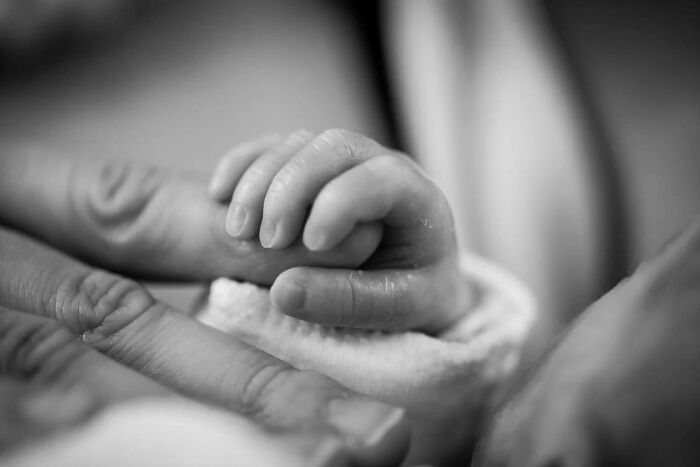
Image credits: drnhfer
#8
In Romania paid maternity leave is up to 2 years and fathers can also request paternal leave.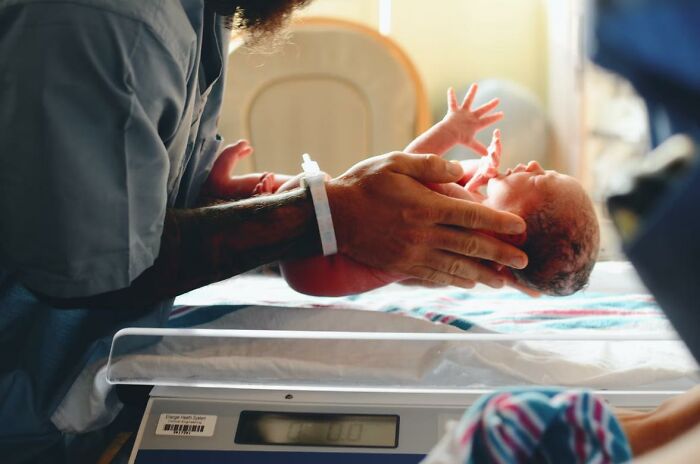
Image credits: enerchia
#9
In Lithuania it's one year paid maternity/paternity leave (77% of your salary). Or you can spread it out over 2 years and get 2 years paid maternity/paternity leave. The other parent also gets one month paid leave when the baby is born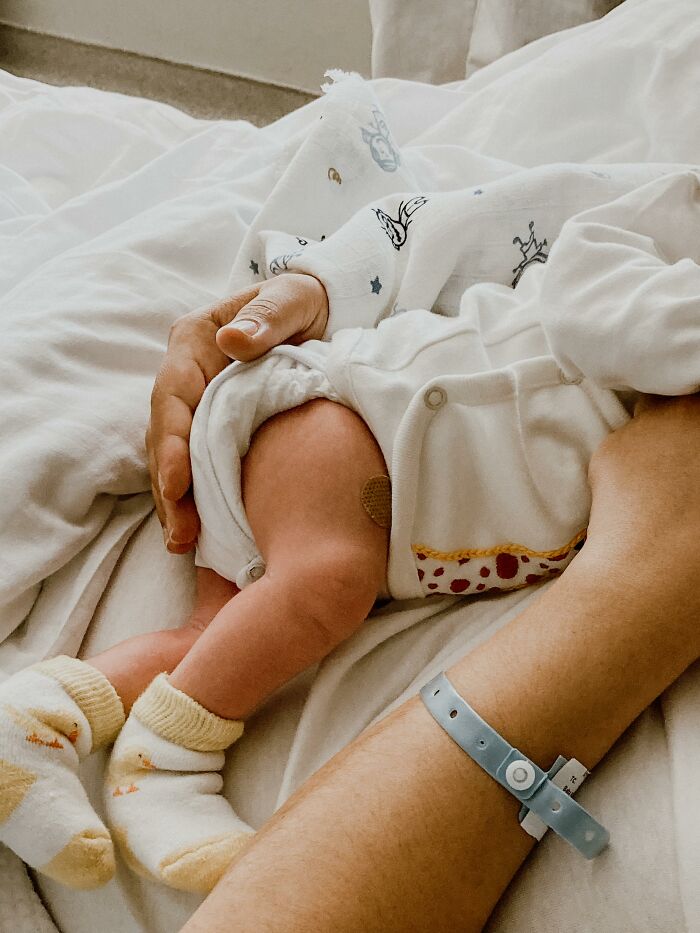
“The postpartum period is such an intricate time for the mother to heal, physically emotionally, and mentally,” she said. “It is also a time where bonding and learning with the newborn takes place. This bonding is healing in so many ways. In premature birth, mothers are forced to make a choice to heal physically or postpone that postpartum time off from work for when the infant comes home from NICU,” she said.
“Unfair/inhumane will describe that forced decision that employers have placed on the parents in these situations. Employers should not be dictating the medical needs of the mother and imposing continued delay in bonding time with their infant.”
#10
I'm in Korea. I got five days of paternity leave. I guess I could have legally taken more time but it was actively discouraged by my work.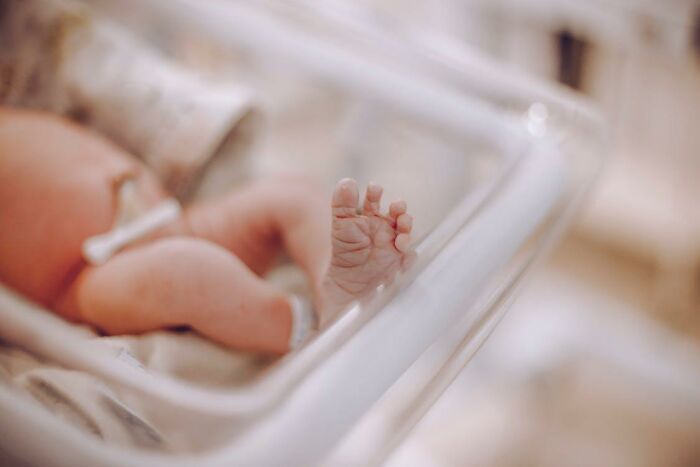
Image credits: pablo_the_bear
#11
I'm from Kuwait and any woman giving birth gets a minimum of 70 days paid maternity leave by law. And if you work in the public sector, you can get paid leave for up to six months (or up to one year making 50% of your salary). When you are ready to go back to work the employer is not allowed to fire you either.
Image credits: mafs
#12
In Japan, maternity leave refers to the medical leave that mothers are entitled to take on either side of their due date. It is approximately six weeks prior to her due date and eight weeks post). There is no equivalent leave for fathers, but some employers offer leave in addition to the mandatory entitlements (such as a week or two of 'paid paternity leave') to fathers around the time of the birth.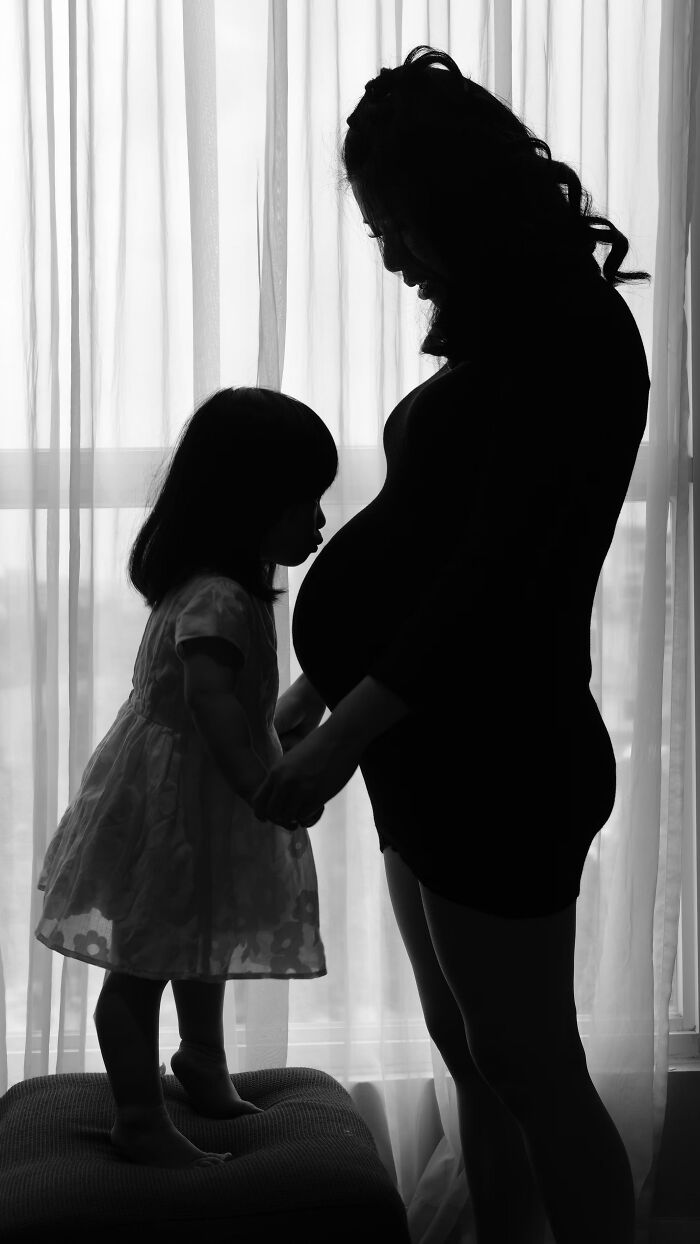
Image credits: starkimpossibility
#13
In the UK, we have maternity and paternity leave, but we also have a separate statutory minimum of two weeks leave for anyone giving birth. This makes it illegal to go back to work for two weeks even if you wanted to. This prevents women from being coerced into going back too soon.
Image credits: extrobe
#14
Costa Rica is a third-world country, but we still have four months of paid maternity leave. In government jobs, even men have one month to help. All mothers have daily paid time to breastfeed and it is mandatory to supply a healthy environment for them to do so.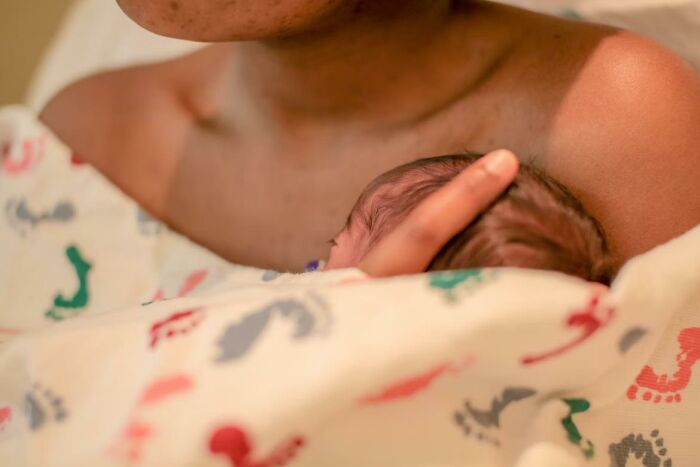
Image credits: mariela_alv
#15
In Sweden we have three months of paid leave for each parent. Then a couple gets 300 days that they can divide between parents as they see fit.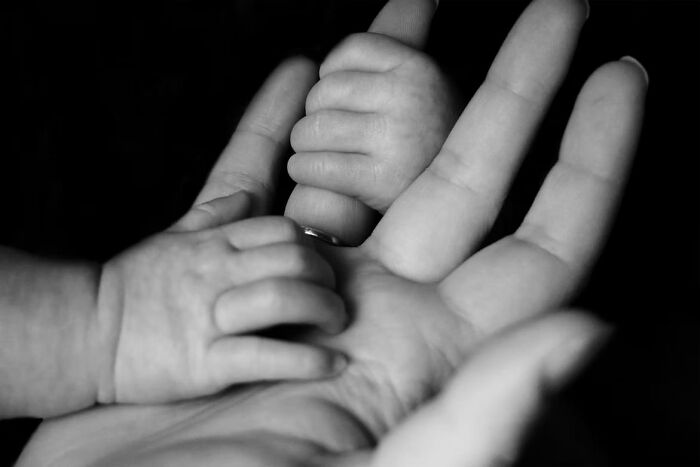
Image credits: xXxMemeLord69xXx
#16
I come from Moldova - the poorest country in Europe. You get 3 years paid plus 3 years unpaid maternity leave where they have to keep your job. You don’t get paid much. I think it’s 70% first year and 30% after that, but at least it’s available. Coming to work after one year maternity leave is considered careerist
Image credits: thatcheekychick
#17
In New Zealand, you can have up to 36 weeks of paid leave. The government pays either parent about $450 a week after tax regardless of what your salary is. Your employer also has to keep your job for you and follow a full integration process. We also have mandatory four weeks of paid leave each year and ten paid sick days. It’s absolutely scary to think about jobs with no paid leave.#18
Brazilian here. In Brazil, mothers have four months off while they make 100% of their salary. The other parent gets five days. The biggest companies are typically part of a government program called Citizen Company, which offers fully paid maternity leave for six months and paternity leave of 20 days. Also, mothers can't be fired for five months after returning to work. It's not enough, but it's something.#19
I live in Israel where there is a mandatory 15 weeks of paid parental leave. The first six weeks must be taken by the one who gave birth, but I decided to go back to work part-time (just five hours a week) and transfer the rest of my mandated leave to my husband, who got to take the rest of the time paid. Payment for parental leave is calculated by your last three pay stubs. You are paid the total amount you earned over the last three pay stubs per month. I couldn't be fired within six months of returning...and I could quit within the first year to take care of my kid and would get the same benefits as if I was fired.#20
In Portugal, we have four months paid at 100% of our salary or five months paid at 87%. You can extend maternity leave to sixth months and Social Security will still pay around 40%. The father has to take a mandatory 10 to 15 days after the birth and can take a full month after the mother's leave — all 100% paid. Even if they are unemployed, parents get paid to stay home with the baby. Children have free medical care until their 18th birthday too, in the public healthcare system.#21
I live in the US. I had to go without a vacation or any time off for more than two years in order to accrue the measly seven weeks of parental leave I finally took. I couldn't afford to be without a paycheck, so I went back the day after my PTO (paid time off) ran out. It was awful. My milk supply was still regulating, no one was sleeping through the night, and within a couple weeks, I was hit with serious postpartum depression. This country can afford paid leave. We are literally the worst for not providing it.#22
I’m a NICU nurse. We had a mom from Denmark once. I mentioned to her that I was going to pump for my baby (8 months old) and I would be right back. When I got back, she had a lot of questions about pumping at work. She was flabbergasted that we have to go back to work while still breastfeeding. Apparently pumping at work is not a thing in Denmark because moms simply stay with their baby when they’re breastfeeding. She said she felt so bad for me, but I had never thought of it like that before.
Image credits: emilyrmorgan
#23
Here in Uruguay we're about to have our first baby. My wife gets three months off and I get 13 consecutive days, all paid for by the government. After that, one of us can take three more months fully paid by the government too.#24
Russian 166 weeks have their downside. 1) Though they are paid, the amount of payment is capped. It was like 25% of my salary when I worked in Russia (software engineer) 2) Many employers try to avoid hiring a woman of “reproductive” age, as they have to find a temporary worker for her while she is on a maternity leave; also the compensation should be paid by an employer - though it will be reimbursed by the state later, employers don’t like to spend their money that way. (I’ve read in some blog that some manager once told something like: “You have sex, and I have to pay for that”). And even if they hire a woman, they may ask her on a job interview if she is married, or if she plans to have kids (those questions are illegal, but…) 3) Even though it’s illegal to fire a pregnant person or a person who is on maternity leave, may employers find a legal way to do so 4) The maternity leave can’t be shared between parents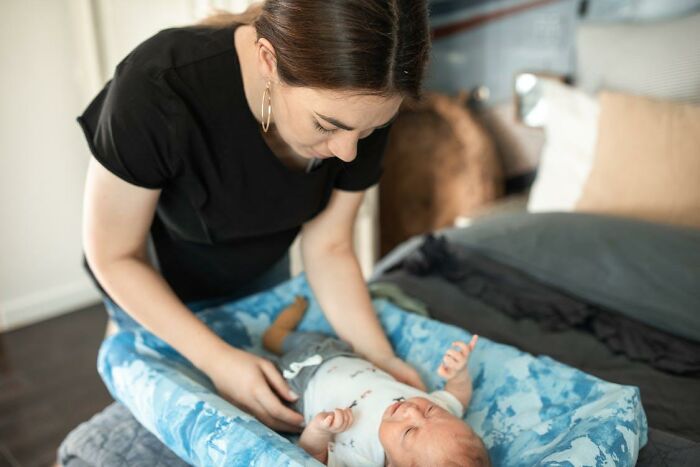
Image credits: HeliosXIII
#25
In France, you get six weeks off before labor and 10 weeks after. You may shift this split to four weeks and then 12 weeks with a doctor's note. This time off is mandatory and your pay is about 90%. For a country that's sometimes touted as 'socialistic,' this paid time off doesn't seem that much. I'm grateful but I would gladly take more!#26
Belgium, I have mandatory 1 week before due date that I have to take, and a maximum of 6 weeks before DD. Then there is a mandatory 9 weeks I have to take postpartum but it can be extended by the 5 optional weeks before delivery, so 14 weeks in total.First month I get paid 90% of my salary, then about 80% for the following months (so dumb if they make it mandatory leave). My hubby gets 20 workdays off (holidays don't count), same with his wage.
I also get protection against termination from the moment you notify your job, with a signed letter from the doc ofc, so people here tell their jobs around the same time they tell everyone else (12 weeks).
My friend in Sweden thought this was ludicrously little time leave and that they have a minimum 5 months or so.

Image credits: Dionesphere
#27
Germany here, I'm originally from the US and can't fathom having a baby in my home country honestly :/ I took off roughly 19 months maternity leave with each kid, the 6 weeks leading up to due date and the 8 weeks after were fully paid and then I received a reduced salary for the other months and continued to be insured and under pension plan. You can theoretically take 3 years of maternity leave here but the 3rd year is unpaid; however you can keep your job (they have to take you back afterwards) and continue to be insured/pensioned.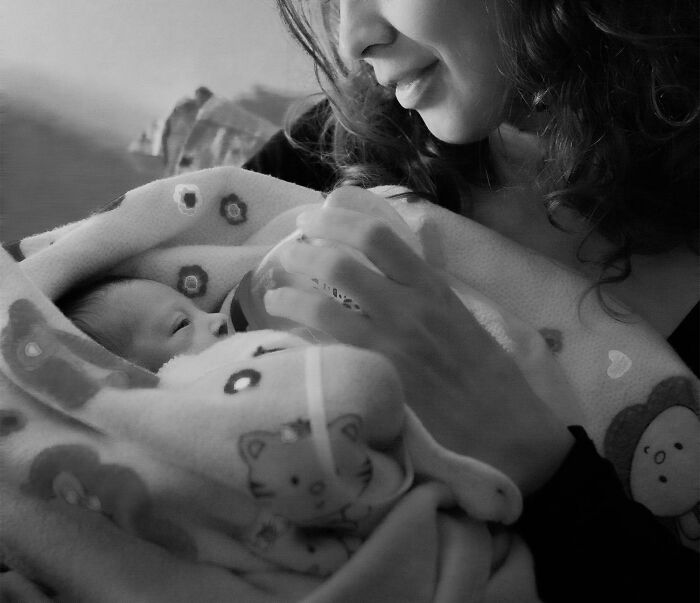
Image credits: WerewolfBarMitzvah09
#28
Australian here - we get 18 weeks at minimum wage (I think that's about $750 per week??). Many employers will 'top up' that amount to your normal salary. My employer pays 16 weeks at full pay on top of the 18 weeks (so you can have 34 weeks mat leave if you want). I have 9 weeks annual leave available, so I'm taking that at half pay and will be paid that at the same time as the government maternity leave.I found it interesting that they also mention sick leave in the article. I think in Australia the average sick leave is 10 days per year (I get 18 days), but it accumulates. As an example I currently have 120 sick days available to me. If I switch employers though, it resets to zero.
But - I'd be interested to hear a viewpoint from anyone in the US who thinks it's fair not to offer paid maternity leave? That's a genuine request - there must be many people who think it's fair not to offer paid leave of any sort for it not to have changed by now.

Image credits: Molly_Doodles
#29
The best thing about Australia's parental leave is that your job is safe for a year. I took the whole year off (with my savings) and just started back at work this month. I'm in a slightly different role which suits me better now as a mum, and it was so lovely having the year off with baby knowing I had employment when I was ready to go back.#30
In India, where we are struggling with over-population the women atleast dont have to suffer due to lack of maternity leave.In order to get maternity leaves, woman employee needs to have minimum 80 working days.
Women employees can avail 8 weeks maternity leave before the expected delivery date and remaining 18 weeks maternity leave will be given after delivery date.
12 weeks of maternity leave will be given to adopting mothers and women employees who have surrogates.
Every employer who has 50 or more than 50 employees will need to arrange creche facilities within 1 km of working areas and 4 visits will be allowed to women employees. These 4 visits include regular intervals of rest. Earlier only 2 visits will be given under nursing breaks for the child less than 15 months old. The above are the changes in maternity benefit act 1961.
The woman employees who are under ESI scheme will get the salary for maternity leave period from ESIC, for remaining women employees employer will pay the salary.
#31
I was a resident doctor during my pregnancy. I worked until the day I was scheduled to be induced. I then had six weeks off, and I also used my four vacation weeks for the year. I had 'saved' two weeks from my previous years in residency. My husband got three days off after our baby was born. He took two weeks of 'vacation' after and I went back to work. Our baby was in daycare by nine weeks old. The US is abysmal for parental leave.#32
I'm in Canada, I took my leave starting at 33 weeks. I make 100% of my salary for 15 weeks. Government covers 55% and my job tops up the payments. After this I'm taking 37 weeks at 55% which is 595$ a week. My SO is taking 10 weeks at the same.The US really needs to step up their game. Would this be something that could be protested for? Even having to pay for the hospital bill of having a child is crazy.

Image credits: camburd
#33
California teacher here. People assume that teachers get paid maternity leave (this is possibly because there are a lot of young professionals and mothers in the field), but the truth is we do NOT. We get zero days of paid leave. We get the federally mandated 12 weeks unpaid leave, but if we need financial support during that time we have to use our sick leave. This means that most of us can’t take the full 12 weeks off.I think a lot of us go into teaching with the hope that it will fit well into a parenting schedule (kids at school while you’re at work, summer and winter breaks) without realizing that we have very few options when it comes to maternity leave. Furthermore, if you get pregnant before getting tenured, there is a very real chance that you could lose your position. Teachers who are not tenured are on temporary contracts. When the school year ends, so does your job, unless the school 'invites' you back. Being pregnant does not improve your odds.
#34
In Germany, each parent can take up to three years of parental leave per child. In the case of the mother, this three years includes a legally prescribed six weeks after birth, during which the mother must stay home. Fathers can start parental leave at childbirth. Both parents have to take at least a part of parental leave before the child turns three and parental leave must conclude before the child's eighth birthday. Aside from these rules, parents are free to choose the beginning and end of their parental leave.#35
Speaking from Chile, I have to take (it’s mandatory) 6 weeks before the due date and before due date it’s around 24 to 30 weeks, all being paid.#36
In Poland women are usually give something like a sick leave (paid) for always the whole of the pregnancy. You can kinda chose if you want to stay at home or not. Then you have 1 year of paid maternity leave (paid around 70%). I think you can also make it into 2 years and spread the money over 2 years. Even if you are not employed permanently you will get 1000 pln per month (around 250 usd but it so worth much more in Poland).#37
I’m in NC in the US and my company now offers 16 weeks partially paid, but added the stipulation that you must come back to work for 12 months afterwards or you’ll need to pay back anything paid out during maternity leave. Really puts a damper on my excitement because I know I’m unable to make the decision not to come back unless I want to just not touch the money on the off chance I have to pay the lump sum back. And I’ve put in 9 years at this company - you would think they’ve gotten value out of me by now.It’s better than most of my fellow US parents but still disappointing.
#38
New York State offers paternity leave for 12 weeks where fathers make 67% of their pay, capped at $1,068.37 per week.#39
In Hungary women get paid leave up to 3 years, but otherwise our government's views suck a*s. Think handmaid's tale vibes, like ostracizing LMBTQ people and diminishing women to the role of giving birth and nothing more. The prolonged paid leave is a part of their policy to popularize having children and a family but otherwise conditions are really bad here (low pays, impossible to buy even a tiny apartment, etc.)#40
In Switzerland we have "only" 4 months. Compare to other countries in Europe already 1 of the less friendly system on the continent. Ppl from different European countries are usually pretty much surprised and feel sorry about us. (in France just the "daddy leave" is something like 3 months as I know)From Europe the USA social system looks inhuman (as well as your Healthcare system) but from the States probably Europe seems communist.
What Bernie recommended (The Skandinavian HC model) is one of the best and healthiest system in Europe! I was pretty much surprised why that idea was not that popular in the States. Here in Europe we are very envious of the Swedish system and well-being level!
#41
I get 4 weeks before the baby and 4 weeks after the baby my full loan +some Bonus (you don’t work 4 weeks before the baby arrives)and then you can take "Karenz" up to 2‘years with a reduced salary.Like I take 1,3 month and get 60% of my salary.Austria
#42
I’m an American living in Sweden. Sweden is pretty great for having kids! I’ve taken 10 months off from work, most of it paid at 80%-90% of my regular salary. My husband is about to go on parental leave and will take 12 months in total, so that our daughter will start daycare when she’s 18 months old. I’ll probably take an additional 1-2 months this year so that we can have more time together during Christmas and in the summer.Your job is protected until the baby is 18 months old, and you have the right to reduce work hours down to 75% of full time until the child is 8 years old (or 12, may have changed recently). You also accrue vacation days for the first 120 days of parental leave! After 10 months off, I’ll have 13 vacation days I need to use by the end of the year…kind of crazy actually.
You get money every month for having a child (1250 sek or approx $130) from when the child is born until they’re 16 years old.
Daycare is heavily subsidized by the government and costs max $160 per month, and the more kids you have in daycare the less it costs per kid. Another amazing thing - if you’re a single parent that works nights, or both parents work nights and you can’t change this at your job, you can apply for your kid to go to “night daycare”, where the government provides care for your kid at an overnight center that they sleep at, or they send a person to stay at your house/apartment and take care of your kid(s) while you’re working. This is the same cost as regular daycare.
#43
As a German who will get 100% of her pay on leave 6 weeks before birth and 8 weeks after (and 67% of her pay for up to three years) and who cannot legally be fired the second she became pregnant I am just as flabbergasted as you are, but the other way around. I cannot believe this is not normal everywhere and I cannot believe they cut us down to 67% after 8 weeks, I think it should be at least 6 full months.#44
Finland here, the system changes next year to where it’s 1/3 birth-giving parent, 1/3 other parent, 1/3 divided between the two however you wish. Adoptive parents have some diff system and don’t get all of the days a parent giving birth would but still time to prepare before child comes. We currently have something like 12% of fathers using their paternity leave in full so the change is in hopes of encouraging them to use more and not lock women into SAHM situation too long and get left out of the workforce (women fall behind on salary increases and earned pension from the time they get their first child compared to male parents).#45
In New Zealand, you get six months paid maternity leave of up to $600 a week before tax depending on how much you earn (this is the highest they will pay). You are also entitled to another 6 months unpaid where your job must hold your position for you. My husband is also entitled to two weeks off, but paternity leave here is unpaid.#46
American here. I’m so over the US and their dated policies that are not family friendly. My husband’s job, a university, gives him 12 weeks of paid paternity leave. Awesome, right?! Well. He works in college athletics. We were luckily able to time our baby to be born off season, but his bosses strongly recommended he should not file for paternity leave or risk being non renewed. What bulls**t. We moved for this job and a big selling point was that paid leave because I’m a teacher and didn’t go back this year. I’m working a low paying part time gig from home instead. If I went back to the classroom, I would have had to quit or pay the district because I wouldn’t have enough leave accrued and wouldn’t have been eligible for disability due to the 12 month work requirement. I do plan to go back next year after baby is born because this massive paycut and inability to save more than $30 bucks a month isn’t sustainable. I’m so mad that his job would be in jeopardy for taking leave that he is allowed to take. I’m mad that the system and his work environment demands he put them above his family, but that’s like all of America. F that. We will likely be one and done if there isn’t promising change to support families. Sorry this turned into a vent. It’s infuriating.#47
As a Swede, I would like to point out that the benefit is 480 days of paid leave to be shared by both parents as they wish, except that 90 days are reserved for each parent. This latter clause exists to encourage fathers to take parental leave and Sweden has one of the highest rates of paternal parental leave in the world.The scale here ends at 24 weeks, but 480 days is 68.5 weeks, which is almost triple the 24 weeks used as the upper end of the scale here.
#48
I work for a professional services firm with 100 offices between US and Canada. One of our US Office Services leaders connected with me recently because one of my Canadian team members transferred to her group. This employee lives in Alberta and is on our Canada payroll and accounting. The US leader asked me about how we handle mat leave. I explained that the employee can take up to 18 months and we typically hire a replacement on contract with one month overlap at start and end for transition. The US leader was FLOORED! They take 12 weeks and the other team members pick up the slack. She was pissed that no one in our HR team has counseled US leaders about the difference between US and Canada. I held my opinion that if I were a leader adding someone to my team from another country I would actively learn the labour standards.I took the opportunity to tell her that not only do we have better mat leave but while they work 40 hours a week, we work 37.5; we have more stat holidays; we have better overtime pay; we have better benefits AND the Canadian offices have summer hours where we work 35 hours per week between Jul 1 and Labour Day. She told me it should be that if a Canadian works on a US team they have to follow the US work standards. I told her that was impossible because the Canadian employee is covered by federal and provincial law and employment standards. She is none to pleased and she is "going to take it up with HR". YIKES!
#49
A decade or so ago, at my previous job one of my clients was a huge American media company, and I worked closely with one of their project managers, a woman I'll call Violet. One day VIolet announced that she was going to take some time off because she was going to have a baby. I congratulated her, wished her the best, etc., expecting not talking to her again any time soon - over here women usually take at least a year off from work when they're having a baby, at least if it's their first, but often even with further kids.Two weeks later Violet was back, like nothing happened, and I was like "oh my god, how come she's back, did she have a miscarriage?! what should I say to her?!" and then turned out that the baby was fine, she just had to get back to work. Two f**king weeks, with a newborn baby. I've no idea how she managed, I hope she had a partner or someone to help her.
from Bored Panda https://bit.ly/3PYBcX7
via Boredpanda